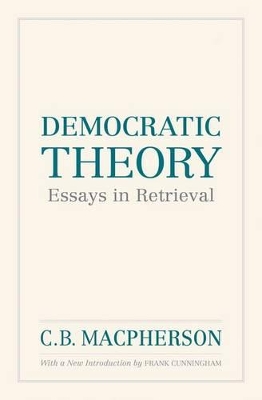Wynford Books
2 total works
As the New Statesman declared: "It is rare for a book to change the intellectual landscape. It is even more unusual for this to happen when the subject is one that has been thoroughly investigated by generations of historians. . . Until the appearance of Professor Macpherson's book, it seemed unlikely that anything radically new could be said about so well-worn a topic. The unexpected has happened, and the shock waves are still being absorbed."
A new introduction by Frank Cunningham puts the work in a twenty-first-century context.
difficulties. Arguing that the neo-classical liberalisms of Chapman, Rawls, and Berlin fall short of providing an adequate basis for a twentieth-century liberal-democratic theory largely because, in different ways, they fail to see or understate the transfer of powers, Macpherson suggests that the liberal theory of
property should be, and can be, revised fundamentally to accommodate new democratic demands. In this manner Macpherson establishes the need for a theory of democracy that gets clear of the disabling central defect of current liberal-democratic theory, while recovering the humanistic values that liberal democracy has always claimed. The result is one of the seminal works of twentieth-century political philosophy. A new Introduction by Frank Cunningham puts the work in a twenty-first-century
context.

